FOR IMMEDIATE RELEASE
July 14, 2021
CONTACT: Larry Farnsworth, (703) 489-9633
WASHINGTON – The National Industrial Hemp Council (NIHC) Board Chair Patrick Atagi released the following statement after the Cannabis Administration and Opportunity Act was released in draft form by Senate Majority Leader Chuck Schumer (D-NY), Senator Corey Booker (D-NJ) and Senator Ron Wyden (D-OR):
“On first glance, the draft contains many positive elements, and we’re pleased the approach of the sponsors is to solicit technical input before releasing final legislation. The accumulated experience of the hemp industry and its regulators over several years of navigating the tribulations of hemp policy will surely offer important insights as this legislation and subsequent regulations are developed, refined and implemented.
“Right now, hemp farmers around the country struggle with a patchwork of state and Federal laws because technical details and regulatory uncertainty have created confusion for the hemp industry at all levels of government. We hope this draft legislation will begin an opportunity for our industries to build and improve upon the experience of Federal regulation in hemp to promote consumer safety and transparency, to level the playing field for farmers and growers, and to create workable regulatory delineations and pathways so that businesses of all shapes and sizes can flourish while redeeming the promise of this new yet ancient crop. Indeed, the plants from which we make our products are cousins—hemp and marijuana are plants of the same species Cannabis sativa L.—and so too are our respective industries-distinct, but similar.
“The NIHC will continue reviewing the draft of this legislation, working with our membership in the hemp industry to provide feedback to lawmakers on Capitol Hill, and bringing our many lessons learned from the tribulations of hemp regulation. The NIHC believes we can work collaboratively with our counterparts in the high-THC cannabis industry toward realizing a sound regulatory vision for the future of legal cannabis in all its forms.”
About the National Industrial Hemp Council: The National Industrial Hemp Council provides high-quality networking and resources for its members, from farm to consumer. Its leadership is composed of leading international, federal, state, private industry, and government professionals throughout the sector. The organization is dedicated to furthering market development, assisting members in entering the industry, and educating consumers on industrial hemp and its applications. For more information please go to www.hempindustrial.com.
# # #


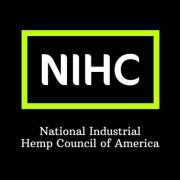

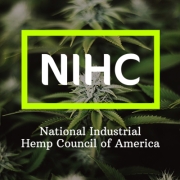





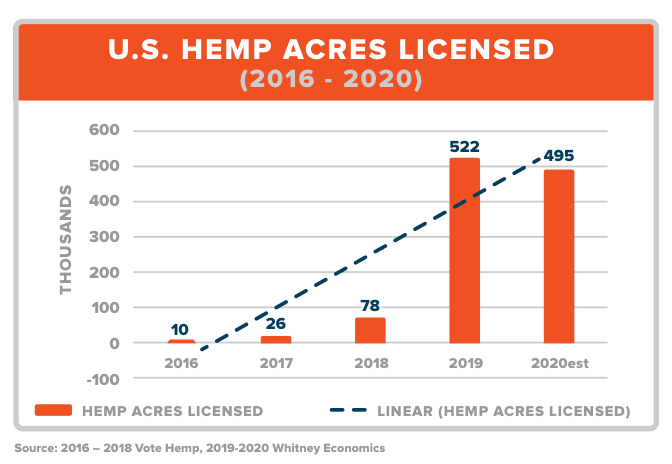
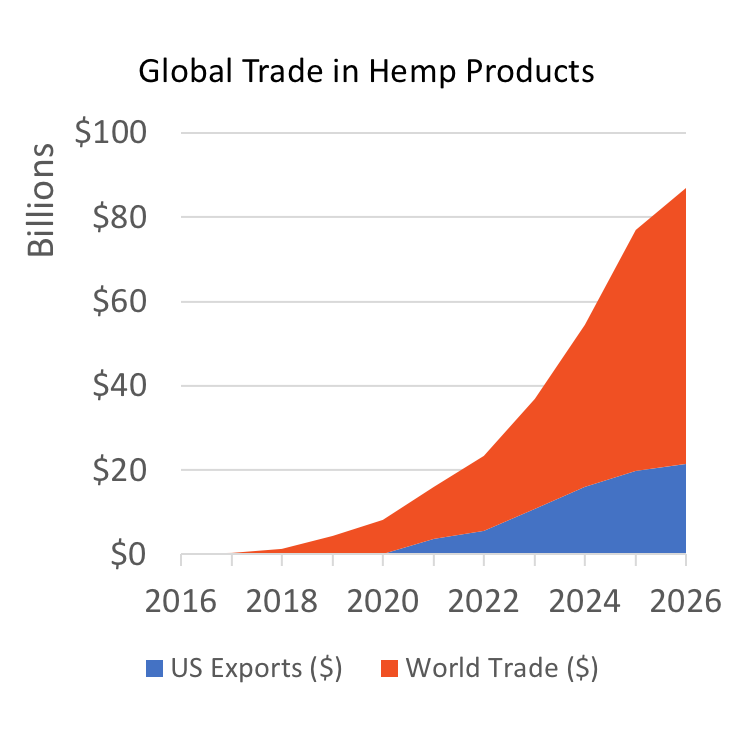 Export values were $0.79 million, down, however, from $8.9 million in 2017, to $2.8 million in 2018. Global trade of industrial hemp for fiber use has increased about 380% annually over the same time-period, but with significant volatility.(1) Global trade in industrial hemp and hemp-based products was over $8.1 billion in 2020 and is forecast to be more than $65 billion by 2026. NIHC estimated that U.S. exports of hemp seed, meal, oil and hemp-based processed products (including cannabidiol-based) exceeded $1.8 billion in 2020. U.S. exports of industrial hemp products are forecast over $21 billion by 2026.
Export values were $0.79 million, down, however, from $8.9 million in 2017, to $2.8 million in 2018. Global trade of industrial hemp for fiber use has increased about 380% annually over the same time-period, but with significant volatility.(1) Global trade in industrial hemp and hemp-based products was over $8.1 billion in 2020 and is forecast to be more than $65 billion by 2026. NIHC estimated that U.S. exports of hemp seed, meal, oil and hemp-based processed products (including cannabidiol-based) exceeded $1.8 billion in 2020. U.S. exports of industrial hemp products are forecast over $21 billion by 2026.
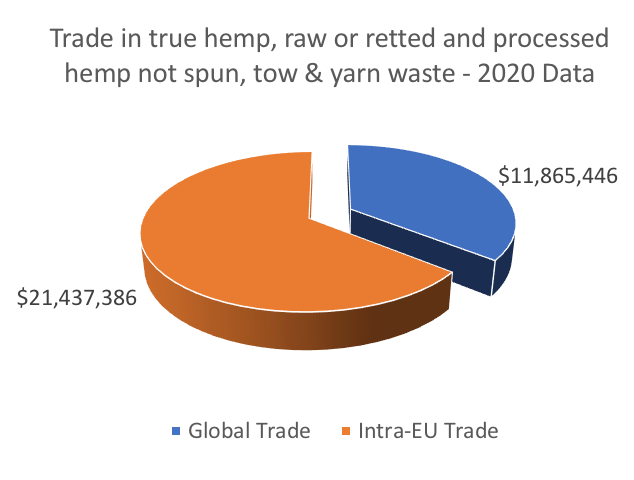 Based on industry input, NIHC has developed both short-term and long-term responses in partnership with USDA’s Foreign Agricultural Service. In addition to engaging European and Asian trade experts, NIHC is building a communication strategy that will provide international visibility for the U.S. hemp industry. In the short-term this means ensuring that U.S. products, product availability and production standards are developed and shared.For the long-term, NIHC’s strategic vision includes expanding these efforts by partnering with USDA to understand the supply chain in target markets, identify market access constraints, develop technical solutions food, feed and supplement use along the value chain, and life cycle assessments to ensure that hemp generally, and US hemp in particular, is valued for its sustainability credentials.
Based on industry input, NIHC has developed both short-term and long-term responses in partnership with USDA’s Foreign Agricultural Service. In addition to engaging European and Asian trade experts, NIHC is building a communication strategy that will provide international visibility for the U.S. hemp industry. In the short-term this means ensuring that U.S. products, product availability and production standards are developed and shared.For the long-term, NIHC’s strategic vision includes expanding these efforts by partnering with USDA to understand the supply chain in target markets, identify market access constraints, develop technical solutions food, feed and supplement use along the value chain, and life cycle assessments to ensure that hemp generally, and US hemp in particular, is valued for its sustainability credentials.

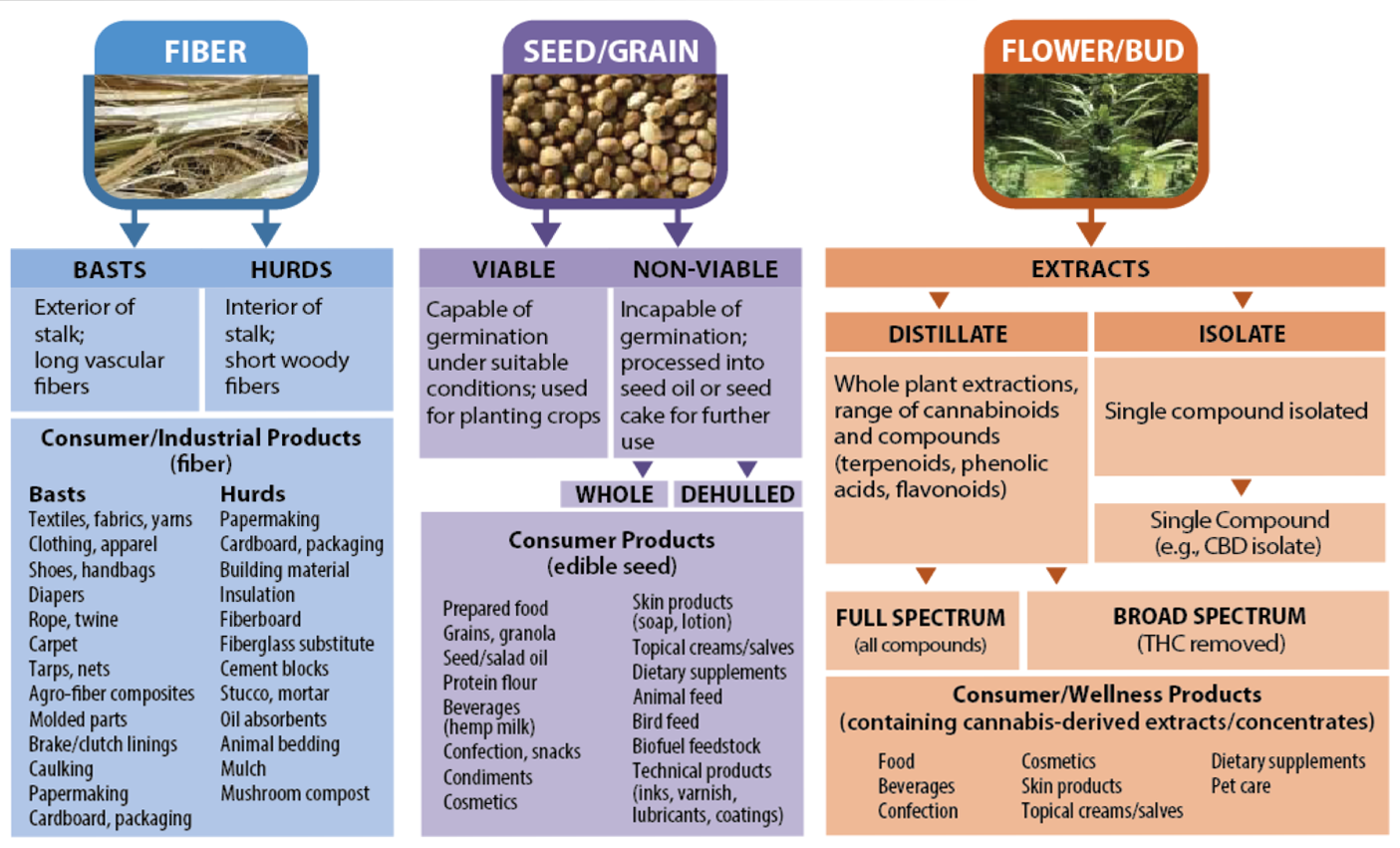

 Fazio (pictured) found his way into industrial hemp through a career in law enforcement. Like many others in the industry, he saw opportunity and had the ingenuity to pursue it.
Fazio (pictured) found his way into industrial hemp through a career in law enforcement. Like many others in the industry, he saw opportunity and had the ingenuity to pursue it.